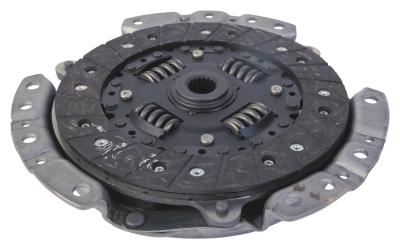
The flywheel is a key component of an automobile's clutch system. It is responsible for storing the energy that ultimately determines how much power your vehicle will have available. The flywheel has two purposes. The first is to transfer energy from the engine, through the clutch, and into the transmission. This, in turn, provides power to the wheels. The second purpose is to act as a weight that prevents the crank shaft from accelerating or slowing down too quickly. Choosing the appropriate parts is essential to optimizing the performance of your engine.
The flywheel gathers energy as it spins, thereby generating and storing more power. Steel flywheels are generally capable of storing more energy than aluminum and are therefore preferable when large amounts of power are needed to drive the motor. A steel flywheel will provide the vehicle with the power it needs without causing excessive strain on the engine.
Because an aluminum flywheel is lighter than a steel one, it requires less inertia to start moving. Although this requires more RPMs, the engine will allow the car to accelerate through the gears much faster. Also, lighter parts mean a lighter vehicle. A lighter vehicle is capable of travelling much faster and is thus ideal for racing.
Many racing enthusiasts measure a car's performance in terms of horsepower. It is therefore important to note that a flywheel's capacity is measured in torque, not horsepower. Horsepower is a unit of measuring power invented by James Watts. It is based on the observation that a horse, when utilized for manual labor, can lift material at a rate of 550 foot-pounds per second over a period of approximately eight hours. Horsepower is how quickly torque can be applied over a given distance.
Torque is a unit of measure for the amount of force it takes to twist or turn. It is typically measured in pound-feet or Newton-meters. Torque is a force that causes on object to rotate (though it can also be applied to non-circular force).
There is a lot of debate over how exactly a flywheel works and how to choose the most appropriate one to suit your individual needs. Anyone attempting to do research into which to purchase needs to do their own research to determine which kind is best. There are many public forums online devoted to the subject and almost all of them are full of car enthusiasts who do not agree on physics or performance value of flywheels. They are, therefore, not typically a good source for professional and reliable information.